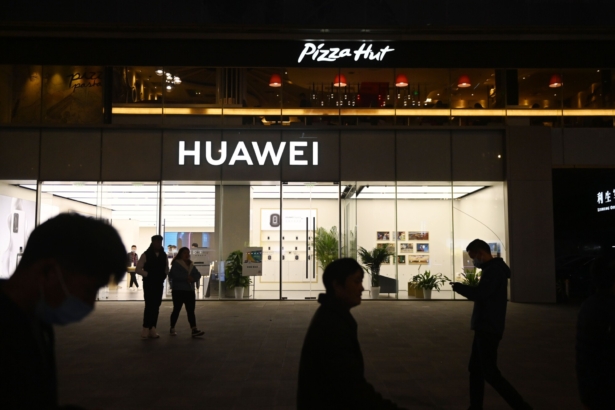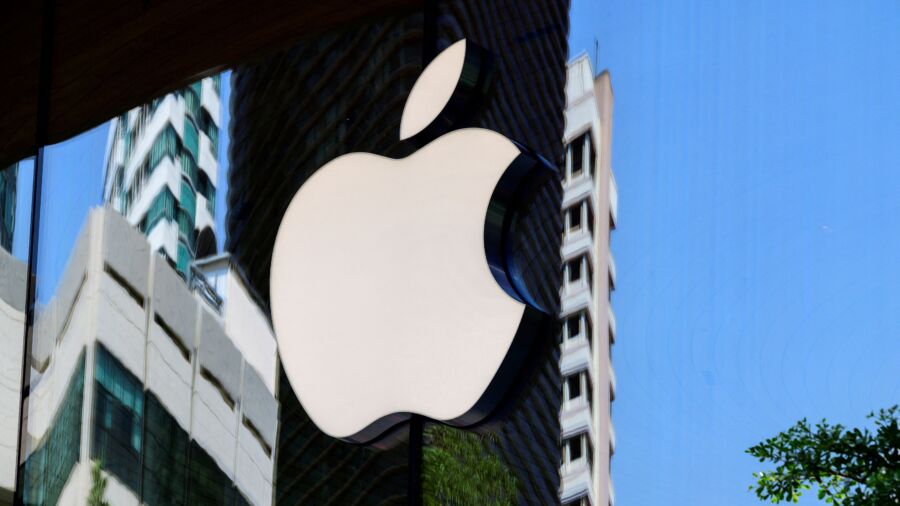Apple shares rebounded at the end of the trading week following a two-session skid that saw the tech titan eliminate about $200 billion in valuation.
The decline was driven by reports that China would prohibit government employees from using iPhones as their work phones.
The world’s largest company by market cap climbed about 1 percent during the Sept. 8 trading session to around $180 per share. The stock is poised for a weekly loss of nearly 5 percent.
Apple’s suppliers also took a hit this week.
Shares of Largan Precision, a Taiwanese camera lens maker, tumbled 4 percent. Chip contractor Taiwan Semiconductor Manufacturing (TSMC) stock was down about 2 percent this week.
Investors panicked after The Wall Street Journal reported on Sept. 6 that China banned government officials from using Apple iPhones for work as part of broader efforts to decrease the nation’s dependence on foreign technology and bolster cybersecurity amid growing geopolitical tensions.
The decision mirrored last year’s measure by the U.S. government against Chinese tech firms and applications like Huawei, TikTok, and ZTE.
President Joe Biden and his administration are still mulling over a plan to prevent domestic suppliers from working with Huawei.
But Beijing’s recent actions against Apple might have more significant financial consequences.

The tech giant generates approximately one-fifth of its revenue from China as the world’s second-largest economy functions as a critical consumer market and manufacturing hub for Apple. It is estimated that Apple will earn $407 billion in the fiscal year ending in September. The ban could also wipe out around $280 million in profit.
Dan Ives, a tech analyst at Wedbush Securities, anticipates an Apple–Huawei hybrid approach by consumers moving forward.
“Seen bearishness and Black Swan ‘this could be the moment’ around Apple/China worries for the last decade and this time no different in my view,” Mr. Ives wrote on X, formerly known as Twitter. “Not saying it’s roses/champagne backdrop in China but Huawei phone will be work phone for some govt workers-iPhone the everyday one.”
Dan Niles, a portfolio manager at Satori Fund, revealed to CNBC on Sept. 7 that he sold his stake in the company and is now shorting Apple because of the potential ban and competition boost from Huawei.
The ban would not “move the needle in terms of hurting them too much,” said Ken Mahoney, CEO of Mahoney Asset Management.
“It seems that the greater fear is that the ban may spread further than just government employees to other companies or entities and even Chinese citizens,” Mr. Mahoney told The Epoch Times. “We feel that this outcome is doubtful however, and this is just a move in the tech chess match cold war between the U.S. and China after the Biden admin signed an executive order to impose blocks and regulations on tech investments in China.”
An Issue for China
So far, the White House has been quiet on the issue.
During a press gaggle en route to Ramstein Air Base in Germany, National Security Adviser Jake Sullivan told reporters that this was an issue for the Chinese regime, not the administration.
“But on the particular question of Apple phones, I’ve seen the reports,” Mr. Sullivan said. “I think this is more of a question for the PRC [People’s Republic of China]—what’s motivating them, what the scope of this will be, and what they think the net effect of that will be—than it is a question for the U.S. government.”

He confirmed that he does not intend to have any near-term conversations with Chinese officials on this matter and will instead “see how things play out.”
At a G-20 summit press briefing, Treasury Secretary Janet Yellen did not comment on China’s reported Apple ban, admitting that she was not prepared to provide the media with “an answer on that.”
In the middle of the business and geopolitical drama, Huawei unveiled new smartphones—the foldable Mate X5 and the Mate 60 Pro+—ahead of next week’s launch event of the iPhone 15. The advanced smartphone chip technology captured the U.S. government’s attention because it sparked concerns that its sanctions have had little effect. This prompted the Commerce Department to launch an official investigation into Huawei’s made-in-China seven-nanometer chip that China’s Semiconductor Manufacturing International Corp. manufactured. This firm was blacklisted by the United States government in December 2020 and was prohibited from accessing the country’s technology.
Huawei is presently a global leader in 5G technology and smartphones, and there are fears that the company threatens national security since it is beholden to Beijing.
As of June 2022, Huawei controls more than 3,700 5G patent families, according to data compiled by the Council on Foreign Relations. By comparison, Apple owns a little more than 500.
Huawei is presently worth about $200 billion. Apple’s value is roughly $2.7 trillion.
Year-to-date, Apple shares have rallied 43 percent.
The Epoch Times has contacted the Department of Commerce for comment.
From The Epoch Times


